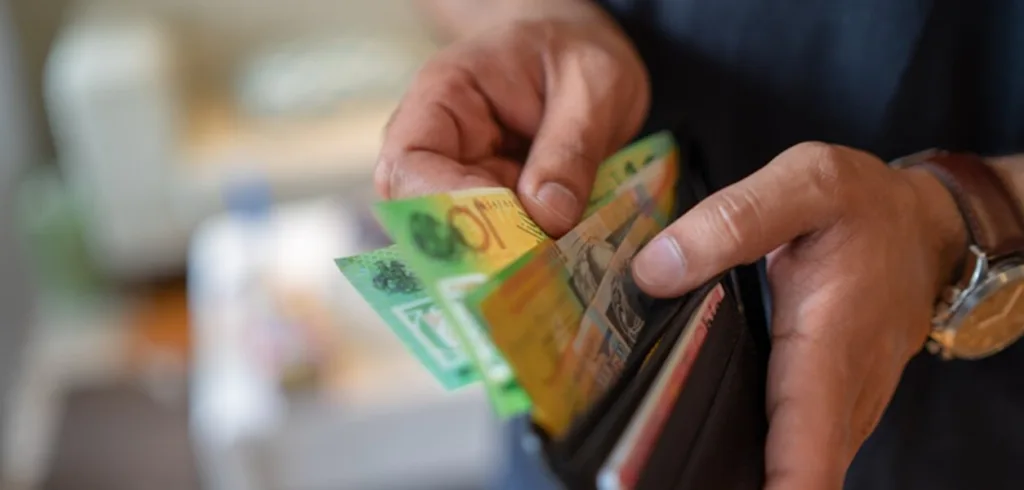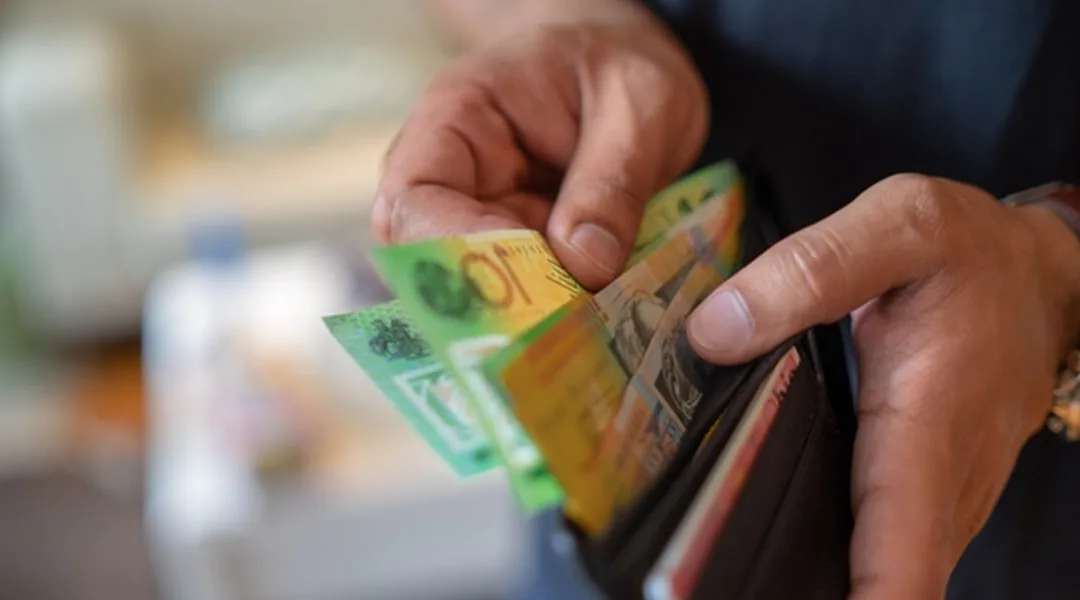
What are your options?
The other day I needed a $100 note for a gift for someone. I didn’t have my purse with debit card on me, but I did have my phone which has my debit account App installed. So I popped into the bank and expected to be able to wave my phone as I do everywhere else, and to get the required cash.
I was wrong, of course. They wouldn’t let me withdraw cash without a debit card. So I went next door to the supermarket and did it there. Do you also find this passing strange? It seems that cash is becoming ever scarcer and ways to access it are reducing rapidly.
Add to this the fact that the government has officially announced the end of paper cheques and you may start to wonder if you are being bullied into using electronic money transfer, or else.
Noel Whittaker wrote about this recently. He’s quite the guru when it comes to money matters, and he reported that in the 1980s cheques were enjoying their heyday, accounting for 85% of non-cash transactions. Today they account for 0.01%, which is a reason why they are being phased out by 2030. But this is a bit of a chicken and egg discussion, isn’t it? I stopped writing and receiving cheques because it became increasingly difficult to find a bank to cash them. Don’t even mention overseas cheques, which had such a surcharge on depositing them that most recipients were forced into agreeing to getting funds electronically instead.
So where does this leave retirees who prefer to deal in cash? With far fewer options, it would seem. Some stores such as my local butcher and ice-cream shop are card only. There are many other examples of this. Yes, you can use a debit card, but have you noticed the increasing prevalence of fees when you wave your card or phone, immediately transferring your money to the retailer, but you get hit with a fee of 0.5-1% every time?
Noel noted that cash is highly valued by many older Australians. This is true, in more ways than one. Many of us like to give cash as a gift, but we are being increasingly encouraged to purchase gift cards instead. Our generation was also taught that you needed some cash on hand at home for an emergency and that you should never go out without at least a few dollars. Back in the day you could be charged with vagrancy if you did not have any money on you at all.
Another way retirees value cash is at the point of retirement or when they reach Preservation Age. At this time, they can access their super. Often the decision is to move savings from an accumulation account, in a lump sum, and deposit it in a bank account, often a term deposit account. This preference to move to cash can be because it seems that the money is now more accessible, more tangible. But as we’ve reported before, this sentiment can come with a high price tag.
In times of high inflation, cash is not necessarily the best investment choice.
As inflation goes up, the return on your term deposit doesn’t always keep pace. Vanguard reports that Australian shares have outperformed cash by nearly double. This doesn’t mean that shares are always a ‘better’ investment. What it means is that it is really important to fully understand asset allocation so that you balance your investments in the most useful way for your current age and stage.
Which means that it is important to think through how to use your super when you have access to it, how to make informed choices about how you allocated these savings across retirement income streams (Account-Based Pensions or perhaps annuities), cash, and other investments which may include shares and property. This is not a set and forget proposition, but an investment choice that needs to be reviewed regularly as your situation and/or needs may change.
Cash may be rapidly going out of fashion as a way of buying goods and services. But savings held in cash forms a significant portion of many retirees’ assets. This means that it is worth fully understanding how this works with your other investments. And, most importantly, how it contributes the smoothest possible income stream across your retirement journey.
You can read more about getting returns on cash here.
How you invest your savings in retirement is particularly important, whether you are investing via super, term deposits or something else. Our adviser’s can help with
- Understanding more about super – there are lots of things to consider
- Your risk tolerance – do you want growth, stability or something in between?
- What difference do different approaches make to your retirement finances
- What difference do different approaches make to your retirement finances with our safe spending simulator
What’s your attitude towards cash? Do you still like to have some of the ‘folding stuff’ in your purse or wallet? Do you use it for gifts? Or have you gone fully electronic for money transfers?






Doesnt cash has the security that a stock market crash wont literally wipe it out as happened with the big crash? How many watched 100k or or more vanish just as about to retire.
As you age you dont have the years up your sleeve to recover.
Hi Kaye, You refer above to the fee for paying with a debit card being 0.5 – 1%, the car dealer where my car is serviced must be an overachiever because they charge a 1.4% transaction fee for debit cards if you tap them and as a minimum for credit card transactions. However if you insert your debit card instead of tapping there is no transaction fee. Also if you book online they expect your full debit/credit card details when you book, and of course this is done for ‘my’ convenience. I usually get a quote for the service and pay cash instead so as not to confuse the staff member.
Hi Lol, thanks for sharing this example of customer service – it makes you want to weep, doesn’t it? It’s a bit like airlines who apparently want us as customers but charge ever more fees, make us manage our own tickets, check in online and lug our bags to the carousel pre-flight … so glad the age of convenience has finally arrived! warmest, Kaye 🙂
I thought it was not legal other than when we had Covid for a shop to refuse cash .We have one of the kitchen chains here that does that so I refuse to shop there. There is no hidden charges with cash and no paper trail.
Hi Lyn, Thank you! You’ve hit the nail right on the head with your approach to suppliers that won’t take cash. They will soon change their tune if we all shop elsewhere!
funnily enough they never cleaned the card reader during the pandemic.
A pre cursor to going fully digital in the guise of pandemic.
Hi Kaye
Let’s say you go to the bank, assuming you can find a branch, and take out $50. You have the cash and the bank get nothing apart from the cost of doing their job.
You buy something with your $50 note and again the bank get nothing. No matter how often it changes hands it is still worth $50 and the bank get nothing.
Take cash out of the story as the banks have persuaded we want and they get a small percentage of every transaction, they can close the branches and ATMs because nobody wants them…
You get the idea I’m sure.
Regards
David
Give this man a cigar & bingo.
David is right to a great extent. However the bank is still getting the difference in percentage terms and their investments so that is where they make their huge and obscene profits. The banks are being narrow-minded because they are likely to earn more if people use cash. The bank will have more cash in their coffers. People spend less when they see real money going out of their pocket, especially young people. Mindlessly splashing their smart phones around with the included virtual digital wallet. Then receive unpleasant surprise at the end of the month.
That’s the whole purpose of forcing us to go cashless , that way the greedy banks get weather.
Id like to know why it takes three days for a transfer of money to whomever, takes 3 days! I also want to know why it takes 5 days to get my fortnightly superannuation paid into my bank account. It seems to take forever. I know the overnight money market is what they’re sweating on, but, this is also unfair.
Hi Belinda, you have nailed it. I would love to know this as well. Money going out of my bank account takes exactly one heartbeat. Money coming back in takes up to a week …..why?
I made a mistake when sending money to the Super fund.
I called the bank stright away. They could not reverse the transactoin, money was gone.
The reversal took 5 weeks and multiple phone calls and written complaints. It was my fault, so they were not in a hurry at all. It was a large sum, and the interest was not working for me. Expensive lesson.